What Are Local Citations?
Local citations are online references that mention your business’s name, address, and phone number (NAP). These references could be made on various online platforms, including business directories, review sites, social media, blogs, news sites, and mapping and navigation apps.
For example, this is a local citation in the local pack on Google search engine result page.
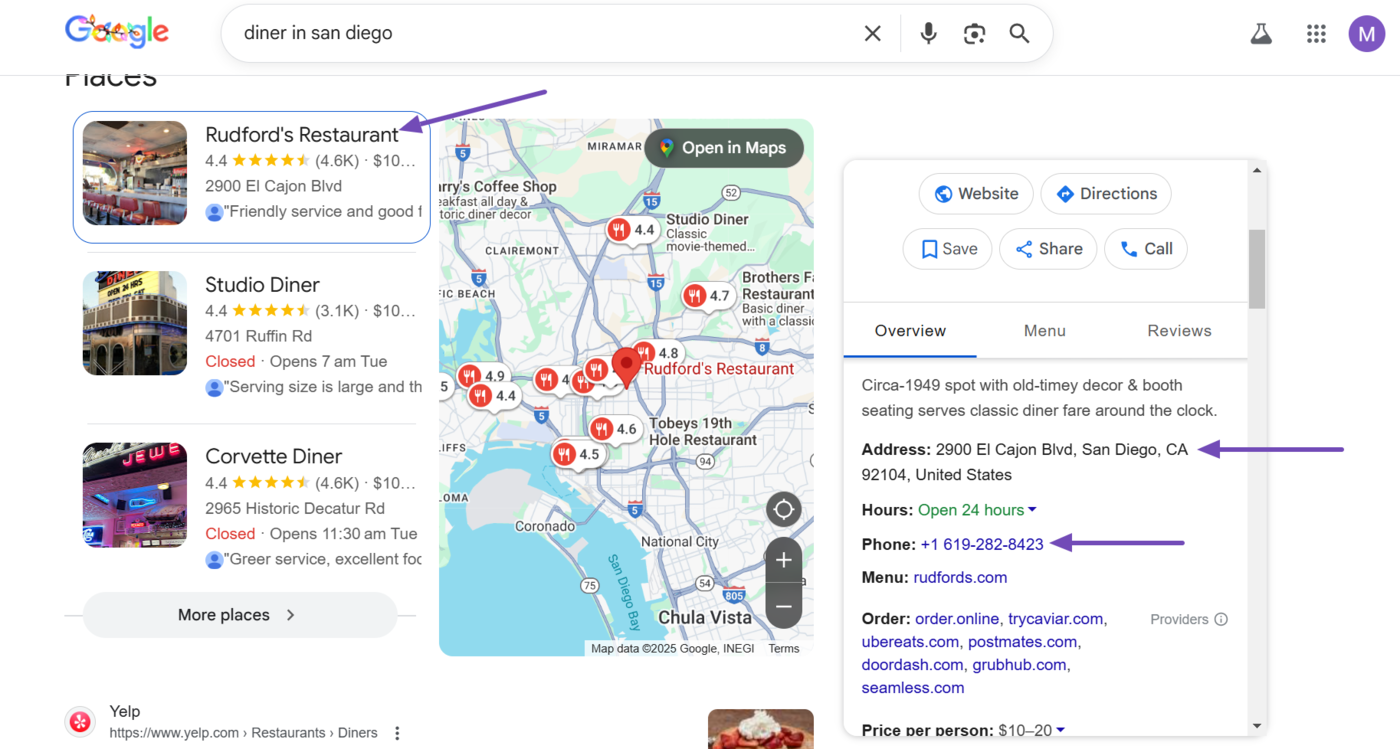
Die Plattform, auf der der Verweis erfolgt, muss alle drei Details erwähnen, damit es als lokales Zitat gilt. Wenn das Zitat ein oder zwei, aber nicht alle drei Details enthält, sprechen wir von einem teilweisen Zitat des Unternehmens.
Local citations are important to Lokales SEO and are believed to be a ranking factor. They signal to search engines that your business is legitimate and can be trusted. They also help search engines verify the accuracy and consistency of your business information.
Importance of Local Citation
Local citations provide businesses with several benefits. For one, they are a local SEO ranking factor. The more citations a business receives, the higher its likelihood of ranking for local search queries on search engine results pages and AI chatbot and answer engine responses.
For example, this is the local citation on Bing search engine results page.
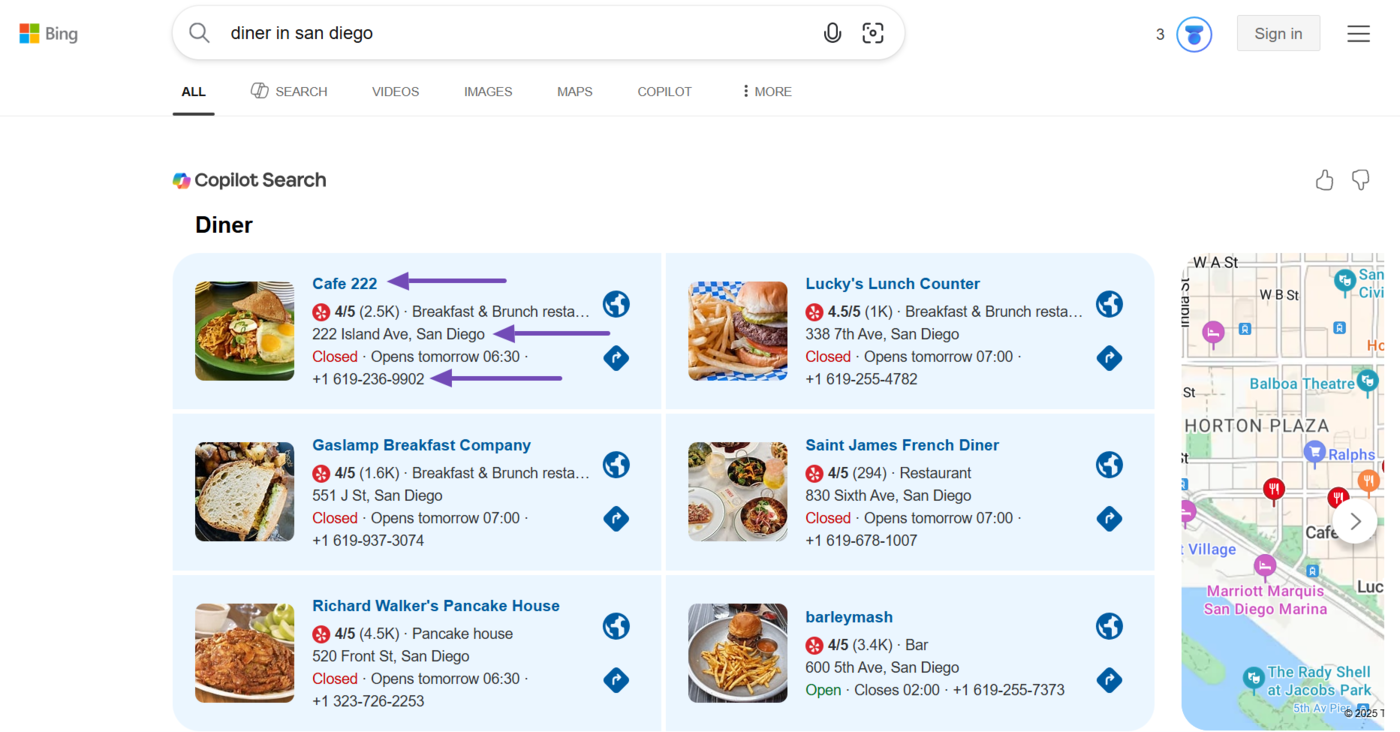
Here is a local citation in a generative KI response by ChatGPT.
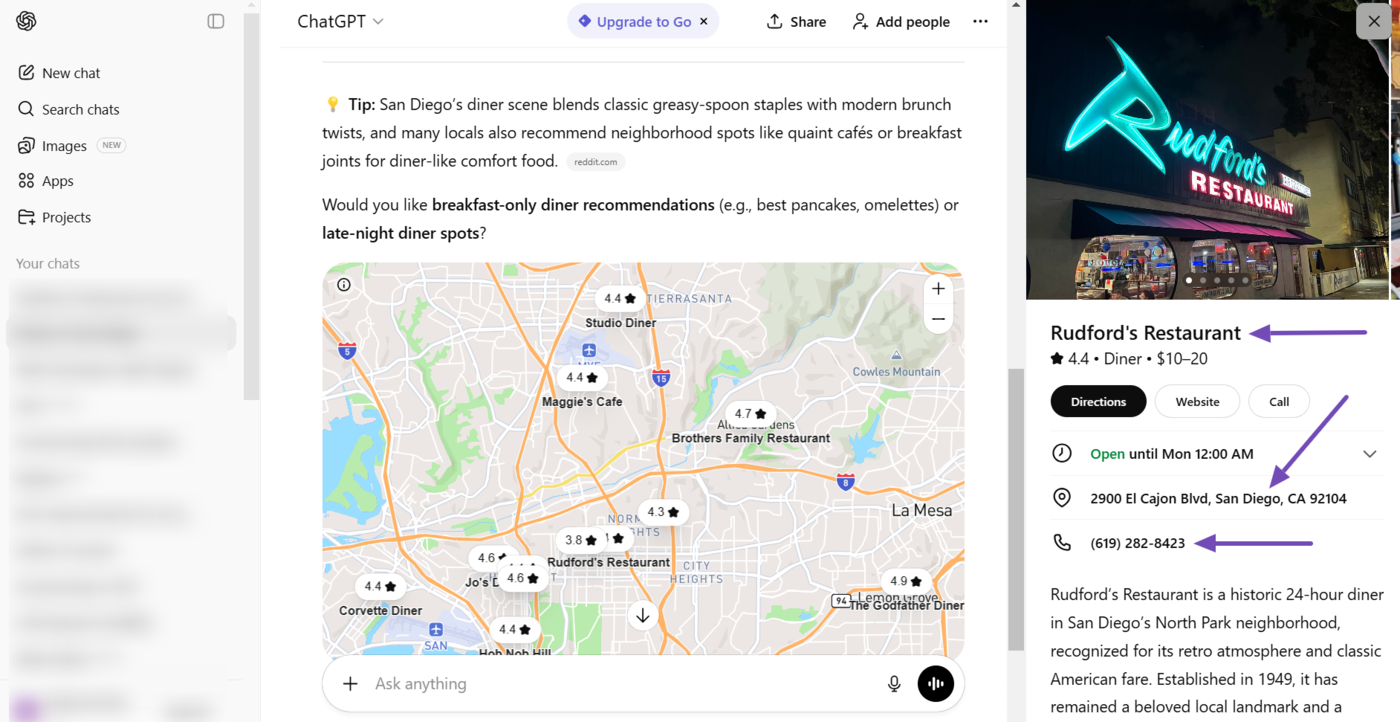
Local citations also indicate your business is real and legitimate. Considering that Google only wants to send visitors to businesses that actually exist, this increases Google’s trust in your site and makes it likely that Google will send customers your way.
The local citation also allows Google to confirm your business details, particularly your name, address, and phone number. These details are collectively called NAP and are considered a local ranking factor. You should ensure your NAP is consistent across the web. That way, Google is sure searchers can contact and locate you.
They also provide Google with insights into your business’s popularity. A popular business will naturally have more mentions across multiple sites. So, if you want your content on local search results pages, you should ensure that you receive local citations.
Types of Local Citations
Local citations vary depending on the format in which they are published. They are split into two types, namely:
- Structured citation
- Unstructured citation
1 Structured Citation
A structured local citation typically lists your business details in a consistent format. These details always include your business name, address, phone number (NAP), and other information that helps visitors find and identify your business.
These citations are typically found on local business directories, social media platforms, and review sites. For example, this is the structured citation for a restaurant on Yelp.
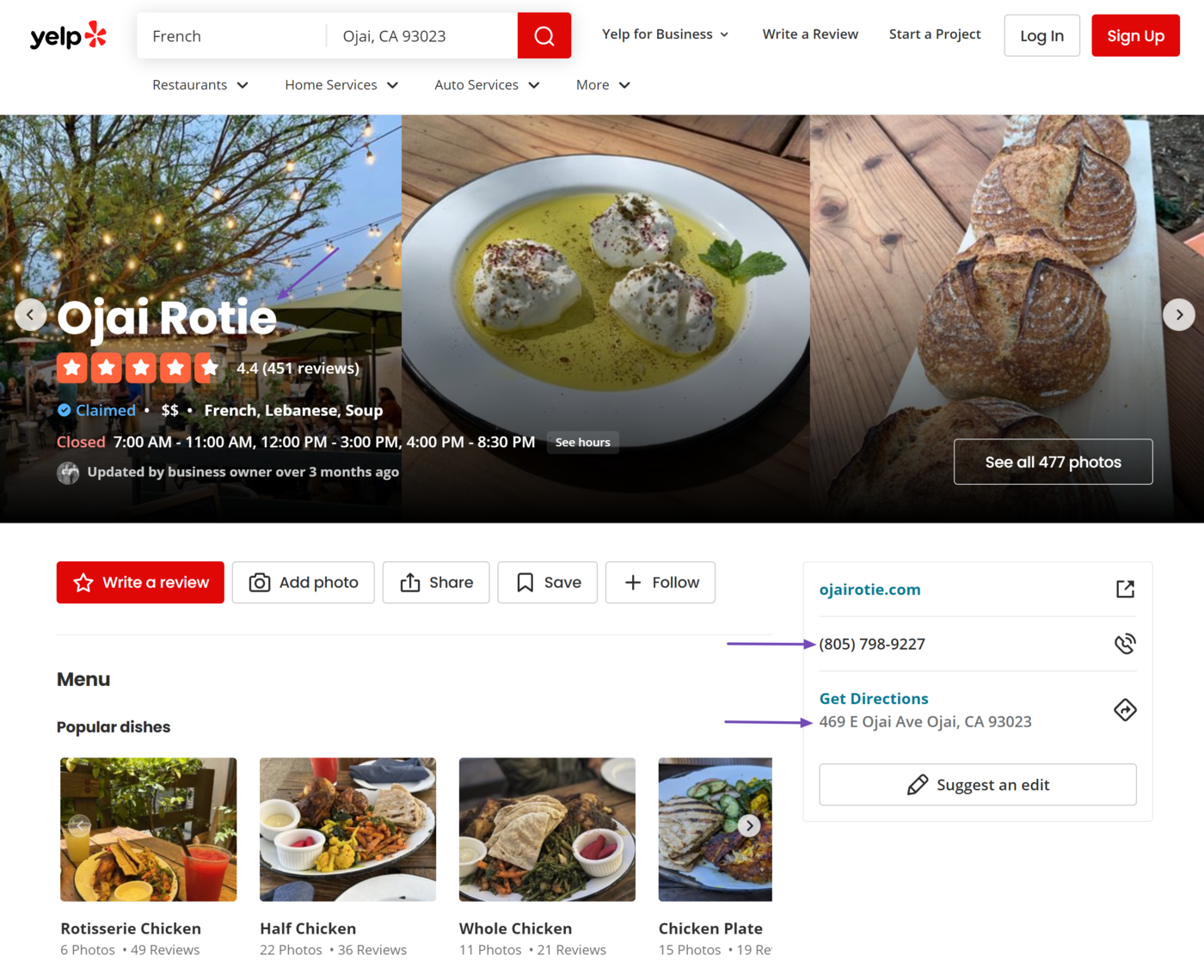
Similarly, this is how Facebook displays the structured citation for another restaurant.
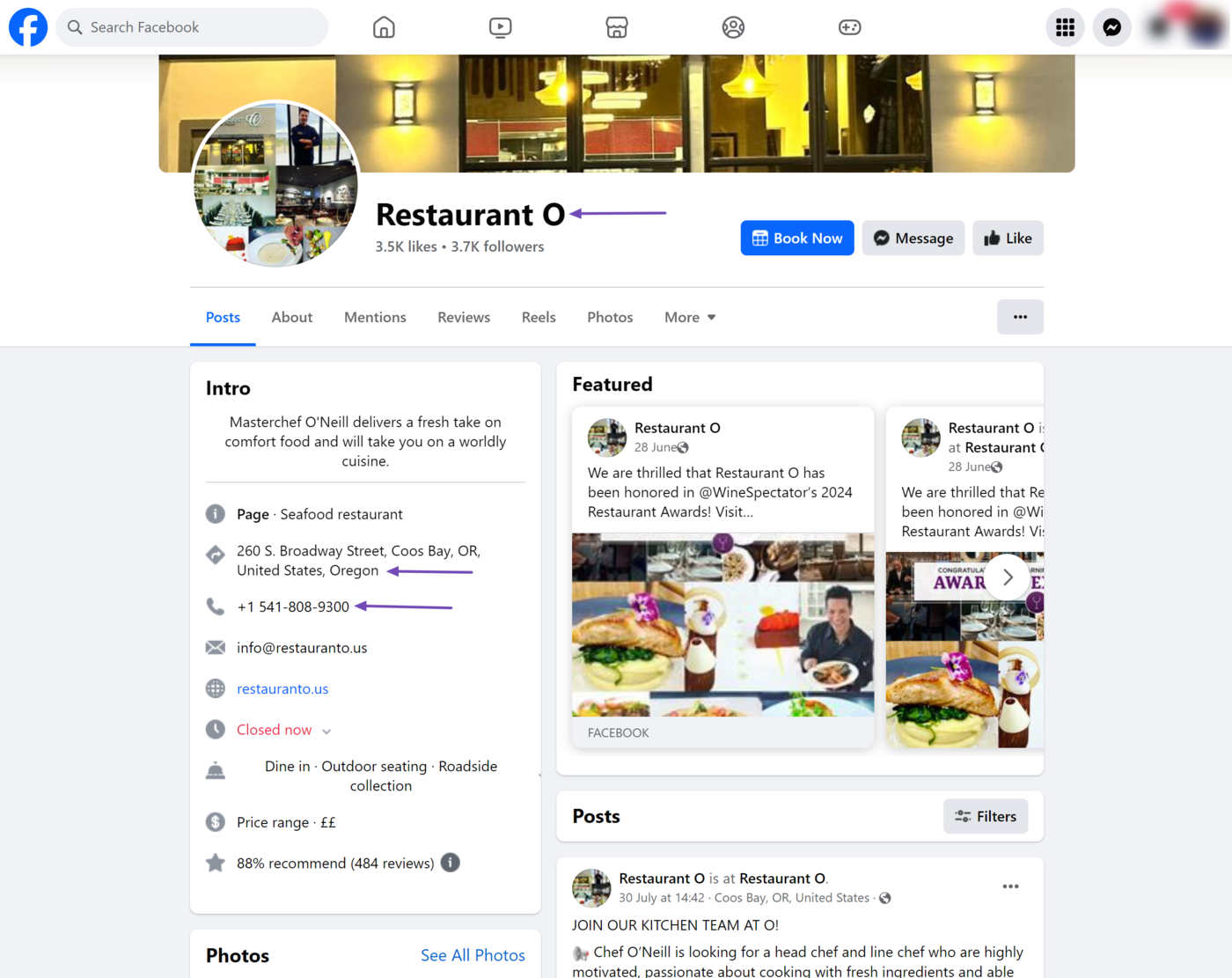
2 Unstructured Citation
Unstructured citations refer to mentions your business receives on websites, blogs, articles, or social media posts. These mentions may include part or all of your business details, including its name, address, and phone number (NAP).
However, the citations are not in a consistent format and can differ significantly, even on the same site. For example, this is a news article containing an unstructured citation of a restaurant. The article only mentions the restaurant’s name and address.
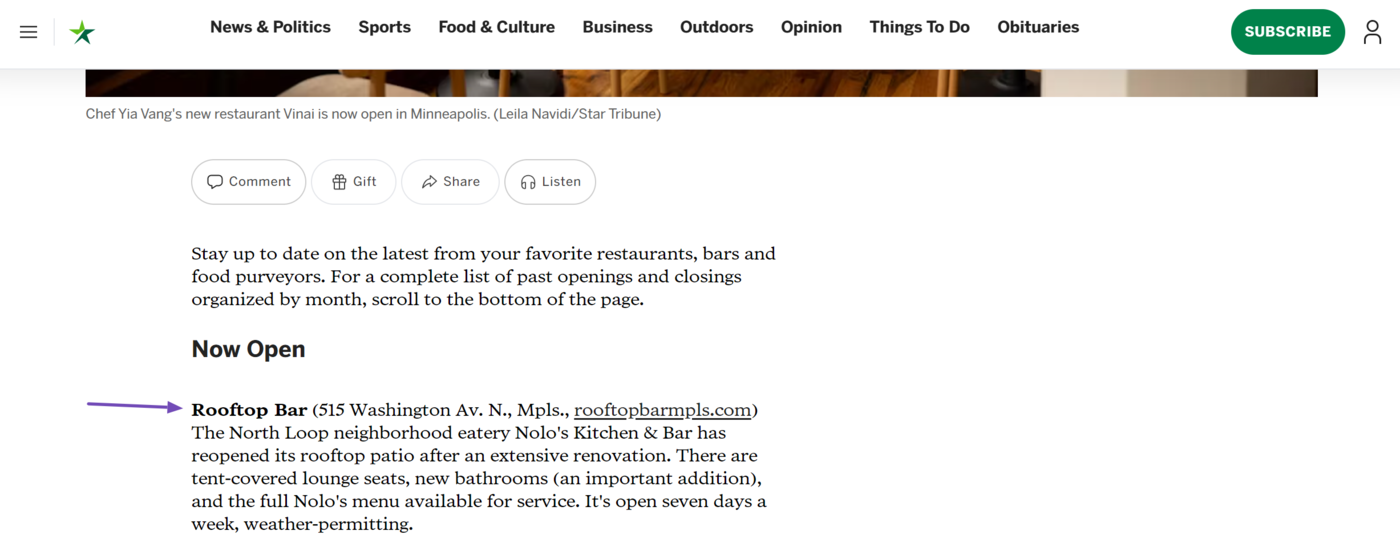
Similarly, this is a post on X (formerly Twitter) containing the unstructured citation and review of a restaurant. It lists the name of the restaurant but does not contain the address or phone number.

How to Get Local Citations
You can get local citations by reaching out to platforms that are willing to list your business or putting yourself in situations where other online platforms and users publish content about your business. Here are some ways to do that.
1 Submit Your Details to Directories and Data Aggregators
You should submit your business details, particularly your name, address, and phone number (NAP), to online directories. However, there are many online directories, and you may need to submit your details to thousands of them.
You could speed things up by submitting your details to online data aggregators. These aggregators will then get your details into business directories.
However, data aggregators will not get you into all directories, so you still have to upload your business details to certain business directories. In this case, you should prioritize popular directories like Yelp, Yellow Pages, and other business directories that typically rank well on Google.
Make sure to create profiles on these platforms and upload your business details to them. You should remember to include high-quality photos that accurately portray your business and the services you offer.
2 Get Listed on Review Sites
Review sites are a great source of local citations. Many review sites allow you to create pages containing structured citations of your business, while customers will sometimes leave unstructured citations about your business.
This further helps as reviews are a local SEO ranking factor. So, it is recommended that you get your business on multiple third-party review sites.
To get started, focus on the top review sites like Trustpilot, Yelp, and TripAdvisor. Not every review site will be relevant to your business, so you do not need to sign up for every review site you find. You should only focus on those relevant to your business. You should ensure to monitor the site and reply to reviews customers leave about your business.
3 Create Social Media Profiles for Your Business
Google can crawl social media pages and note what users are saying about your business. Some platforms, like Facebook, even allow users to create business profiles and leave reviews. So, you should create on relevant social media sites.
4 Submit Your Details to Your Local Chamber of Commerce
Your local chamber of commerce likely has one or more directories containing the details of businesses within your location. You should get your business listed in these directories.
In many instances, you may even be eligible to enter your details into multiple directories covering your location. So, check the web for local, city, regional, and state business directories that are relevant to you and get your details in there.
5 Sponsor Local Events
Event sponsorship is a great way to receive unstructured citations. Depending on your business, you should consider sponsoring local events or participating in community activities. These will earn you mentions and citations on the event organizer’s site, community blogs, and local news outlets.
6 Publish Guest Posts on Local Blogs
Google requires links in guest posts to be set to nofollow. So, while your guest posts may not provide follow backlinks, they will typically allow you to mention your business details and link back to your site.
Google and visitors can access these details. So, even when they do not pass link equity to your site, they could still get visitors to you.
7 Join Local Business Associations
Some areas or regions have business associations. These associations may have directories containing the names of businesses within their locality. You should consider joining these associations and getting your business on their directories. They are a great source of structured citations.
8 Submit Press Releases to Local News Outlets
Press releases are a great way to get unstructured citations for your business. You should submit press releases about your business events, achievements, or news to local news outlets. These can get you citations and increase your visibility on local search results pages.